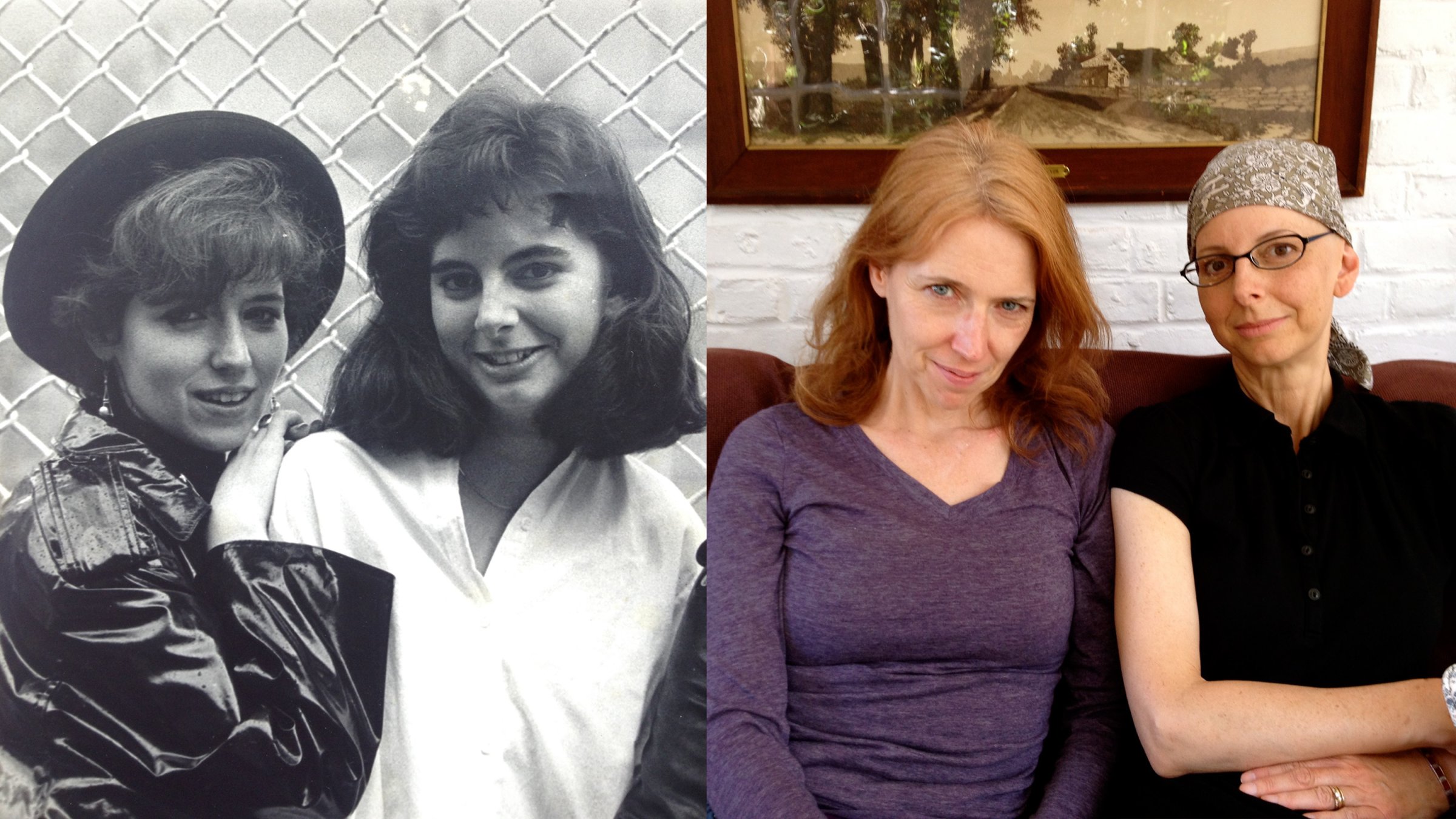
When I started to write my memoir of my years in and out of late-stage cancer, I knew that it would be a love story. I knew that it would be dotted with wedding days, long late-night conversations and babies. It just turned out that the hero of the tale wasn’t the person I’d originally assumed it would be.
Two years ago, I published a New York Times Modern Love essay about reuniting with my estranged husband right before a life-changing diagnosis of malignant melanoma. I had, at the time, pictured the book I’d write about my grave illness and subsequent recovery in romantic terms—a tale of an older, wiser, more wounded bond, but a more profound and tender one, too. But a month later, I got the email from my friend Debbie, and the whole narrative was recast.
She had just been in the hospital, again. This time, though, the doctors had sat her and her husband down for a meeting, and they had used words like “surgery not an option” and “slowing the progression.” After nearly four years of surgeries and chemo and hope and sickness, my beloved friend suddenly found herself rounding the homestretch of her life. She would be gone six months later. I would spend those months writing my book. I would dedicate it to her.
The love story of friendship, while not the stuff of rom-coms or Nicholas Sparks novels, is nonetheless for many of us among the most enduring, satisfying relationships we will ever experience. Our families can be hit or miss. Lovers, even spouses, can come and go. It’s our friends who often wind up as the truest soul mates we ever have.
I met Debbie in college, on the day we became roommates in a small house in Philadelphia. At the time, we had no more in common than a mutual close friend who’d recommended we all share a living space and expenses.
The same friend had also been concerned that our personalities were so fundamentally at odds, she wondered how we’d get along. Debbie was reserved; I was outgoing. Debbie was responsible and reliable; I was…not.
Yet our friend needn’t have worried; it was love at first sight. Debbie was quietly quirky in a way that made me feel special to be let in on her joke. She was kind and generous and steady and loyal and good-humored, even when disease later ravaged her body and wracked her in pain. She did not seek attention or accolades. When she died, there was a line around the block to get in to her memorial.
Read more: How Yoga Helped Me Get Over My Father’s Death
With our naturally different temperaments, it was no surprise that, over the years, our lives took very different paths. Somehow, however, they were also eerily parallel.
We stood next to each other at our weddings, exactly eight months apart, she in a flowered springtime bridesmaid dress and then me, later, in a black velvet winter one.
One day a few years later, she called me to share the latest on a serial killer we shared a morbid fascination with. “By the way,” she added drily, “I’m pregnant.” “Me, too,” I replied. Our firstborns had the same due date.
Then, in 2010, we got something new in common. Three months to the day after I’d been diagnosed with malignant melanoma, she told me she’d just learned she had ovarian cancer.
After that, our fates fluctuated. There was a very brief period when it almost looked like we were going to be members of the survivors club together. Then there was my Stage 4 rediagnosis, followed by the clinical trial that saved my life. And there was her cancer, coming back again and again, wreaking more havoc each time, until the late summer day we sat together in her sunroom, me with no evidence of disease, and she with evidence of disease everywhere. The day we said goodbye.
“This was not the plan,” she had said when she was first diagnosed. “You and me—we got married together, we had our kids together and we’re going to die together. When we’re 90.” That was how I’d always pictured it too, for nearly 30 years—a future in which we were someday roommates again, this time at the senior community, taking bus trips to Atlantic City and finishing each other’s sentences and desserts. Cancer had other ideas.
I’ve been rich in my life with many kinds of love—the intimate bond of marriage, the ferocious, protective love of parenthood, the deep closeness of other friendships. But Debbie and I had something utterly unique—an already strong friendship that became, horribly and beautifully, a club of just us two.
The two with cancer. The two who could speak its language, who could laugh about side effects and scars and confide our deepest fears. Of every person I’ve ever encountered in my life, it was only Debbie who shared with me the path that no one ever wants to walk.
And of the many things that cancer has taken away from me, the one I miss the most, always, is her.
Mary Elizabeth Williams is the author of A Series of Catastrophes and Miracles: A True Story of Love, Science, and Cancer
More Must-Reads From TIME
- The 100 Most Influential People of 2024
- The Revolution of Yulia Navalnaya
- 6 Compliments That Land Every Time
- What's the Deal With the Bitcoin Halving?
- If You're Dating Right Now , You're Brave: Column
- The AI That Could Heal a Divided Internet
- Fallout Is a Brilliant Model for the Future of Video Game Adaptations
- Want Weekly Recs on What to Watch, Read, and More? Sign Up for Worth Your Time
Contact us at letters@time.com